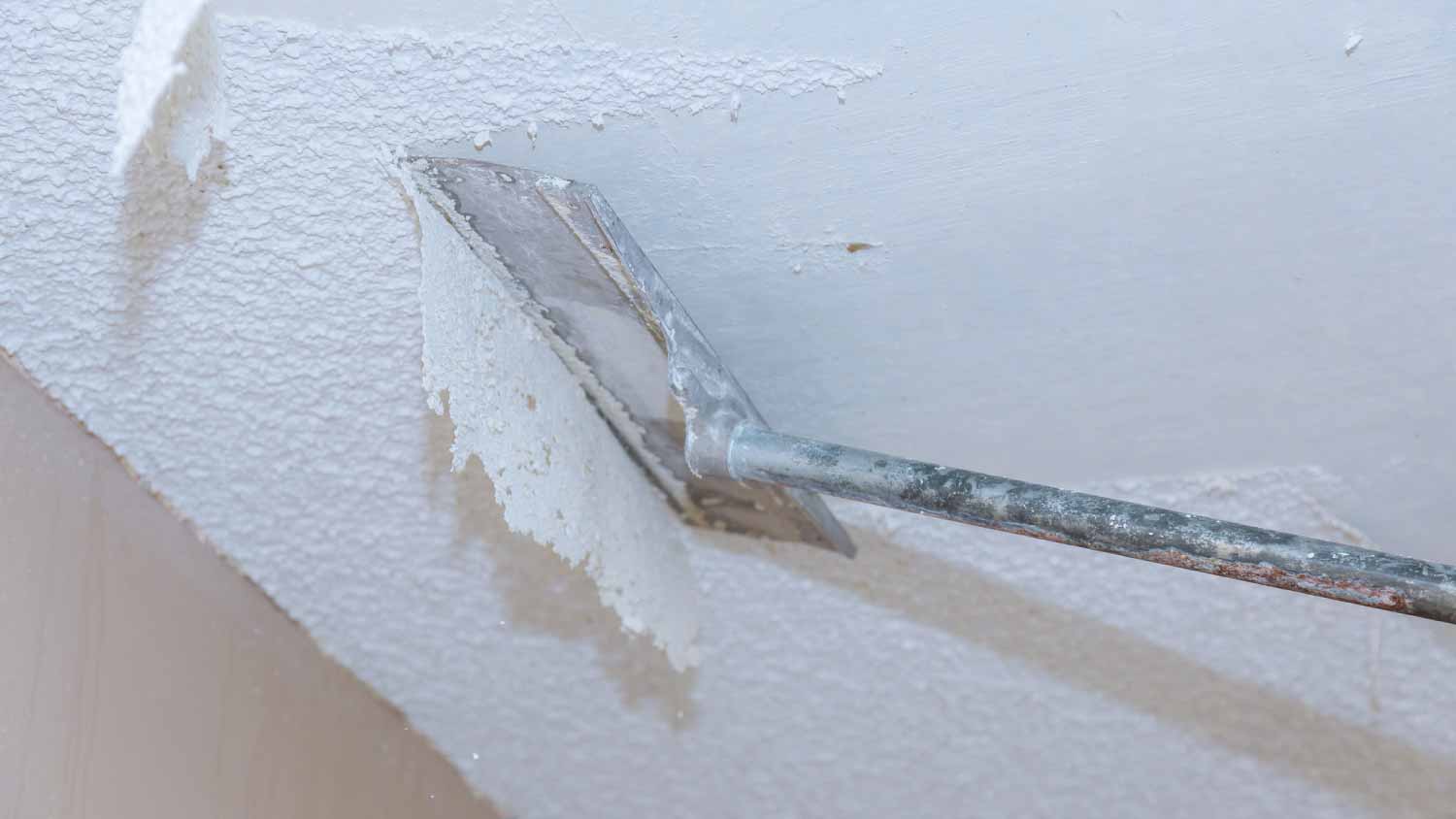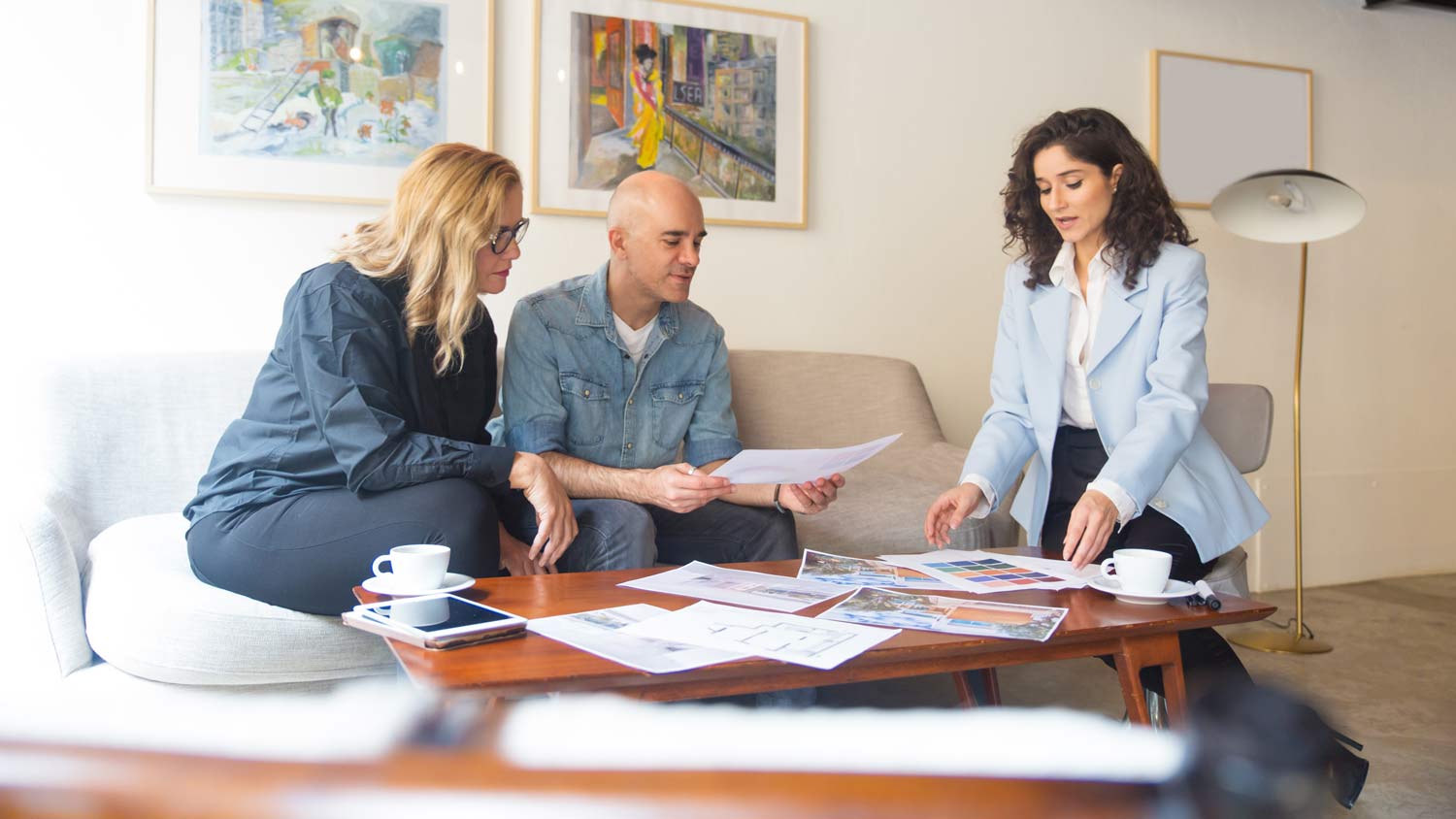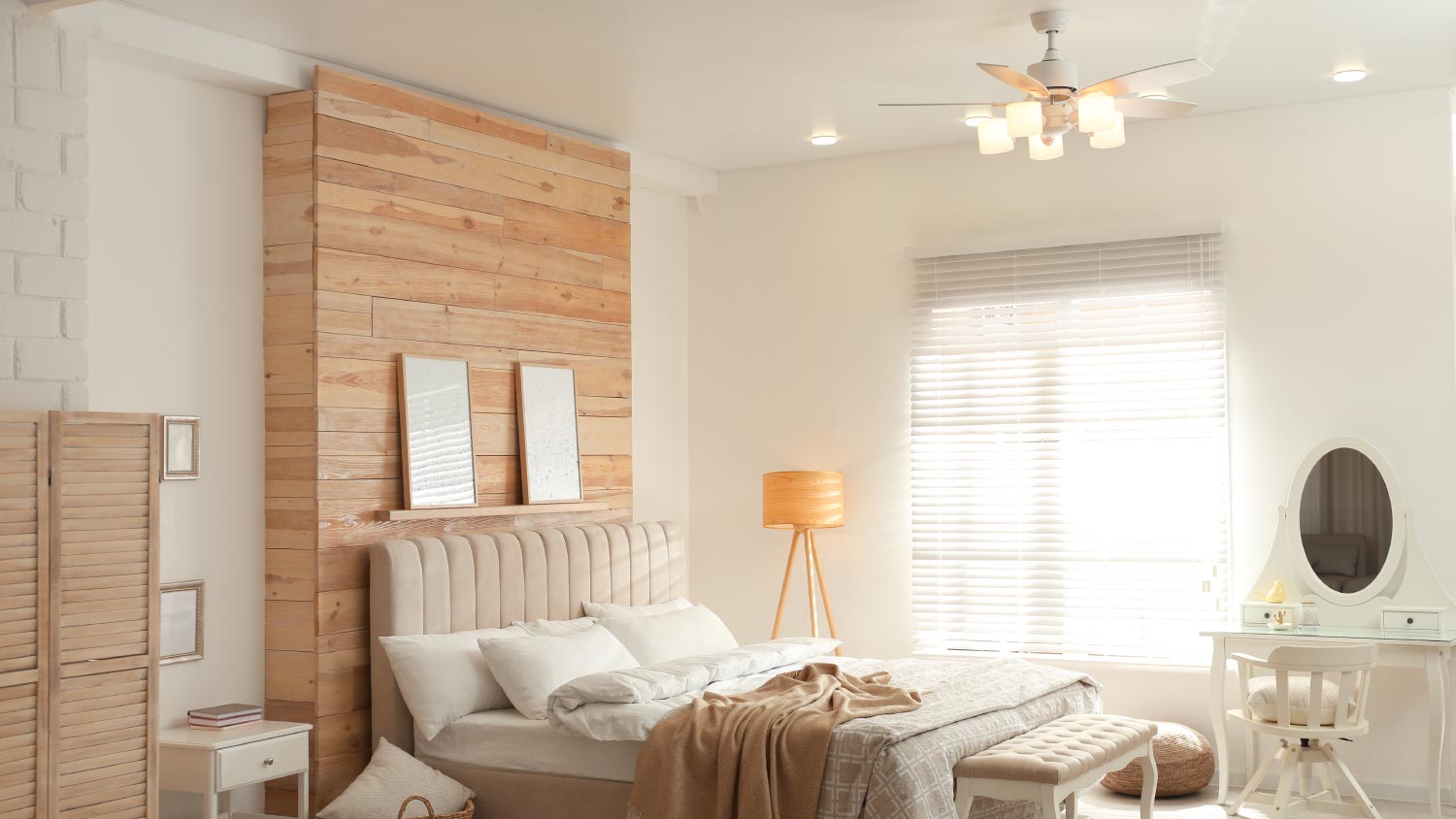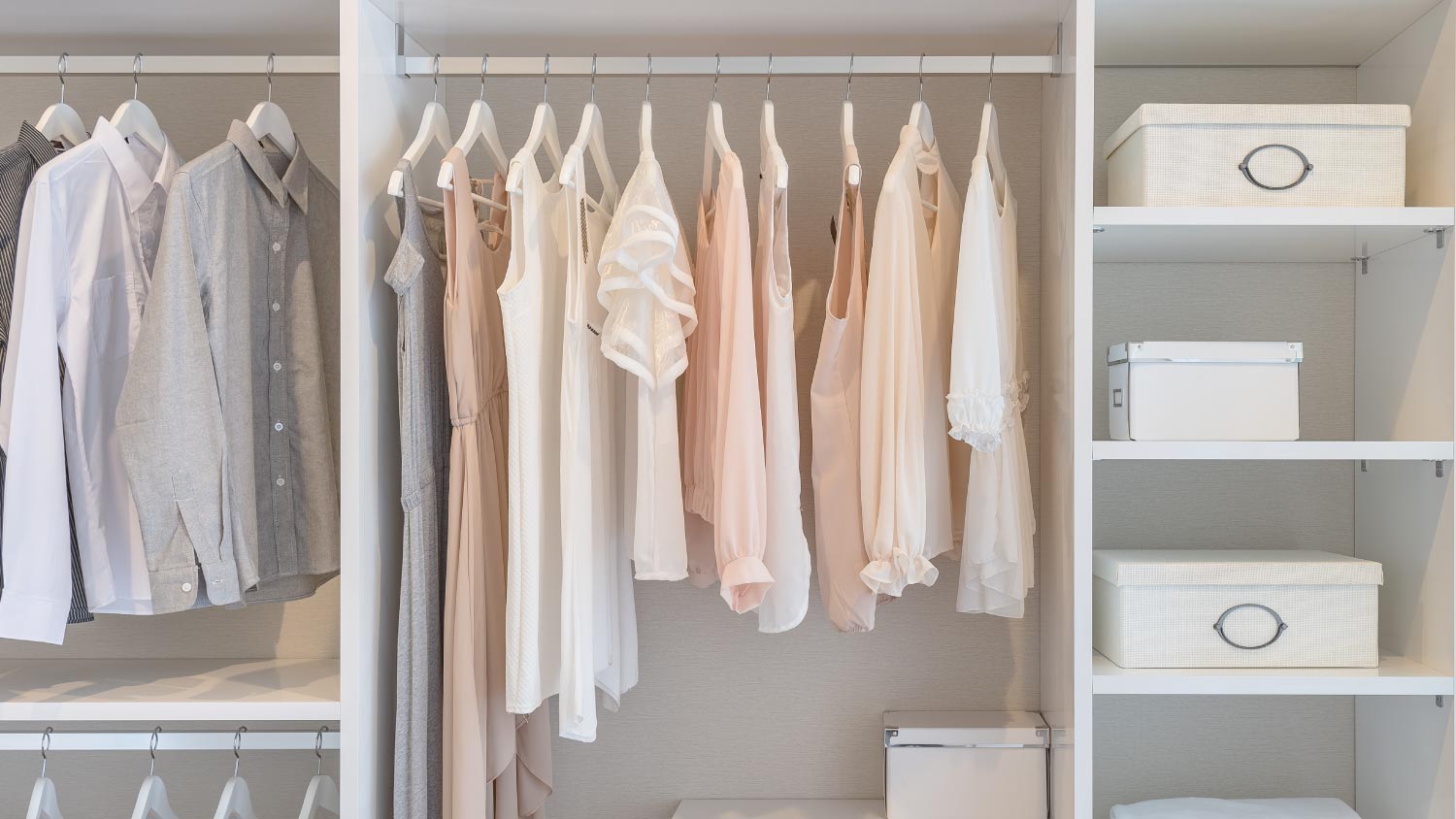
Need a little extra room for clothes storage in your home? Learn about the average cost to build a closet, some cost factors to consider, and more.
Tin ceiling installation costs an average of $3,500, with most homeowners paying between $1,800 and $7,000. Your price depends on ceiling size, tile type, and labor rates.


Tin ceiling installation costs significantly depend on the size of your project, with prices ranging from $5 to $15 per square foot.
The main factors affecting cost are tile type, finish, ceiling size, and labor rates, with materials often priced per square foot.
A professionally installed tin ceiling can enhance resale value and visual appeal, offering a strong return on investment for many homeowners.
Completing this project improves durability and provides a unique, long-lasting design feature above your living space.
Choose standard patterns or faux tin tiles for a more budget-friendly installation without sacrificing style.
This article was created using automation technology and thoroughly fact-checked and edited by an Angi Editor in accordance with our AI policy.
The average tin ceiling installation costs $3,500, with most homeowners spending between $1,800 and $7,000. Prices vary based on ceiling size, tile material, and labor rates. Expect to pay $5 to $15 per square foot, including materials and installation, with larger or custom projects costing more.
Tin ceilings are a standout upgrade that can transform a room’s look and add value to your home. This guide will help you understand the factors that influence the cost of installing tin ceilings, so you can confidently plan your next project.
The size of your ceiling is the single biggest factor in determining your total installation costs. Since tin tiles are priced and installed by the square foot, larger spaces like open kitchens or dining rooms will cost more than smaller areas. For example, installing a tin ceiling in a kitchen may be less expensive overall than covering an entire living room, but the cost per square foot remains similar.
If your room has high or vaulted ceilings, costs increase because more materials and labor are required. Difficult access or unique architectural features can also drive up labor rates, especially if installers need scaffolding or special equipment.
| Ceiling Size (Sq. Ft.) | Average Cost | Average Cost Range |
|---|---|---|
| 50 | $400 | $250–$750 |
| 100 | $900 | $600–$1,500 |
| 200 | $2,200 | $1,200–$3,500 |
| 400 | $4,500 | $2,500–$7,500 |
Your choice of tin ceiling tile has a major impact on the total project cost. Real tin tiles are known for their authenticity and durability, but steel, aluminum, and faux tin options offer varying price points and finishes. Unfinished tiles are less expensive, while pre-finished or hand-painted tiles increase the final cost. Custom patterns also cost more than standard designs.
Thicker tiles (higher gauge) are more durable but harder to install, which can increase both material and labor costs. Faux tin tiles are the most budget-friendly, but may not offer the same lasting value or classic look as real metal.
| Tile Type | Finish | Cost per Sq. Ft. | Pros | Cons |
|---|---|---|---|---|
| Real tin | Unfinished | $7 | Classic appearance, durable | Needs finishing, higher cost |
| Real tin | Pre-finished | $10 | Ready to install, long-lasting | More expensive |
| Steel | Powder-coated | $8 | Durable, rust-resistant | Heavier, harder to cut |
| Aluminum | Pre-finished | $6 | Lightweight, easy to install | Less authentic look |
| Faux tin | Pre-painted PVC | $4 | Budget-friendly, lightweight, easy to cut | Lower durability, less value |
| Real tin | Hand-painted/custom | $15 | Unique, custom design | Highest cost, long lead time |
Tin ceiling installation costs can be higher or lower depending on where you live. Labor rates and material costs are higher in urban areas or regions with a higher cost of living. In rural locations, you might pay less for labor, but shipping fees for tin tiles can add up if local suppliers are limited.
The room’s location in your home also affects cost. Kitchens and bathrooms may require extra preparation or moisture-resistant finishes, while multi-story homes or hard-to-reach ceilings often cost more due to increased labor and equipment needs.
Several factors contribute to the total cost of a tin ceiling installation. Understanding these helps you plan your budget and avoid surprises.
Labor is a significant portion of the total project cost, often accounting for 40% to 60% of the final bill. Professional tin ceiling installers charge $60 to $100 per hour, with some setting minimum service fees for small projects.
Labor rates vary by region and are higher for complex layouts, high ceilings, or intricate patterns. More experienced installers may charge more, but their expertise ensures a flawless and long-lasting result.
Depending on your location, you may need a permit for tin ceiling installation, especially if the work alters electrical, structural, or fire safety systems. Permit fees range from $50 to $300, and some municipalities require inspections, particularly in historic homes or commercial properties. Always check local regulations and factor permit and inspection costs into your project budget.
Upgrades like crown molding, cornices, or medallions can enhance the finished look but add to the cost of the tin ceiling installation. Integrating lighting—such as recessed lights or chandeliers—requires careful planning and may involve additional electrical work.
Soundproofing, insulation, and custom paint or finishes also increase total costs. Specialty fasteners or adhesives may be needed for certain ceiling types or heavier tiles.
Project complexity can drive up costs, especially if your ceiling is curved, coffered, or irregularly shaped. Working around beams, ductwork, or existing fixtures requires extra time and materials. Custom layouts or intricate patterns are more labor-intensive.
Accessibility also matters when it comes to labor rates. Tight spaces, high ceilings, or obstacles may require scaffolding or lifts, which may incur additional equipment rental fees.
Site preparation is an additional cost that involves removing old ceiling materials, repairing or leveling surfaces, and handling delivery logistics. These steps may cost several hundred dollars. After installation, debris removal and cleaning are necessary for a polished result.
If you hire a designer for a custom layout, interior design fees can range from $200 to $1,000. Some municipalities also charge final inspection fees for code compliance.
Beyond materials and labor, there are additional costs to consider when installing a tin ceiling.
Most tin ceiling tiles come with manufacturer warranties, covering defects for five to twenty years. Some installers offer workmanship warranties, which protect against installation errors for one to five years. Extended warranties may cost extra, but can provide peace of mind and long-term value.
Regular dusting and occasional damp wiping are enough to keep tin ceilings looking great. Over time, you may need to repaint or refinish tiles, especially in kitchens or bathrooms. Repairing dents, scratches, or corrosion costs $100 to $500, depending on severity. Preventative maintenance, like prompt cleaning and avoiding moisture buildup, extends the ceiling’s lifespan.
Sales tax applies to materials and labor in most states, adding 5% to 10% to your bill. Major renovations, like large-scale tin ceiling installations, could influence your property assessment and annual property taxes.
Some insurers consider tin ceilings a value-adding upgrade, which may increase premiums slightly. Make sure your contractor has liability insurance to cover accidental damage during installation. It’s wise to confirm your homeowner’s policy covers renovations before starting work.
DIY tin ceiling installation can save on labor costs, but it requires careful planning, the right tools, and some construction know-how. Materials for a DIY project cost $3 to $10 per square foot, but you’ll also need to rent or buy tools, ladders, and safety gear, adding $100 to $500. DIY installation takes longer—often several days for a single room—while a professional crew may finish in one or two days.
Risks of DIY installation include improper alignment, visible seams, or long-term durability issues. For large or complex projects, or if your ceiling is high or irregularly shaped, it’s best to hire a local interior decorator to plan your project and ensure a safe, polished outcome.
Sometimes, tin ceilings need only minor repairs, while other situations call for full replacement. You can repair small dents, loose tiles, or isolated water damage for $200 to $800. If large sections are damaged or if matching the original tile is difficult, full replacement may be necessary.
If ceiling repair costs approach half the price of a new installation, replacement is the better investment. Warranty status, tile availability, and the ceiling’s age all influence this decision.
| Scenario | Average Cost | When Recommended |
|---|---|---|
| Repair | $400 | Minor damage, matching tiles available, under warranty |
| Replace | $3,500 | Extensive damage, aged ceiling, and difficult to match old tiles |
Installing a tin ceiling can deliver a strong return on investment, especially in historic or high-end homes. Tin ceilings boost visual appeal and set your home apart, attracting buyers and increasing resale value. Compared to other ceiling upgrades, tin offers a unique blend of character, durability, and timelessness.
Quality installation, thoughtful design, and choosing high-impact areas (like kitchens or dining rooms) maximize your project’s value. In addition to aesthetics, tin ceilings are fire-resistant and easy to maintain—features many buyers appreciate.
You can keep your tin ceiling installation cost in check with a few smart strategies:
Get multiple quotes from qualified installers.
Choose standard tile patterns over custom designs.
Install tin ceilings in high-impact areas only.
Purchase materials in bulk for discounts.
Schedule the installation during the contractor's off-peak seasons.
Handle demolition or prep work yourself if feasible.
Opt for faux tin tiles for a similar look at a lower cost.
Home is the most important place on earth, which is why Angi has helped more than 150 million homeowners transform their houses into homes they adore. To help homeowners with their next project, Angi provides readers with the most accurate cost data and upholds strict editorial standards. We extensively research project costs to develop the pricing data you see, so you can make the best decisions for you and your home. We rely on reputable sources, including the U.S. Bureau of Labor Statistics, academic journals, market studies, and interviews with industry experts—all to ensure our prices reflect real-world projects.
Want to help us improve our cost data? Send us a recent project quote to [email protected]. Quotes and personal information will not be shared publicly.
From average costs to expert advice, get all the answers you need to get your job done.

Need a little extra room for clothes storage in your home? Learn about the average cost to build a closet, some cost factors to consider, and more.

Wondering how much it costs to remove an acoustic ceiling? Get cost estimates, key factors, and expert tips to help you plan your ceiling update.

How much does an interior designer cost? Discover average prices, cost factors, and tips to help you budget for your next home design project.

Create a stunning and functional home or remodel with an interior designer. Follow these common interior design questions to prepare for working with a pro.

Discover the average cost of stretch ceiling installation, key price factors, and ways to save. Get transparent pricing to plan your stretch ceiling project.

Discover the cost to install a built-in wardrobe. Learn about average prices, installation factors, and ways to save on your custom storage project.